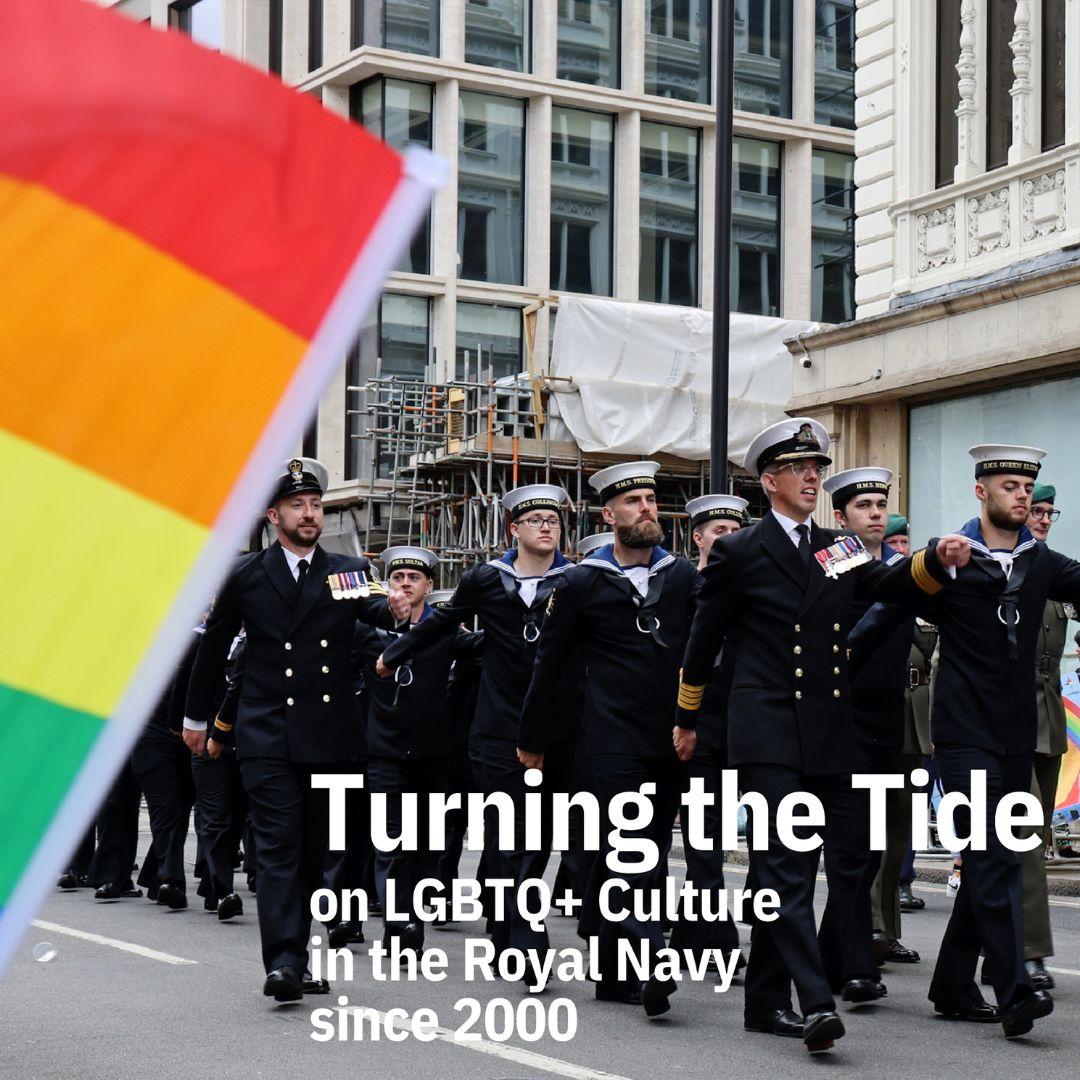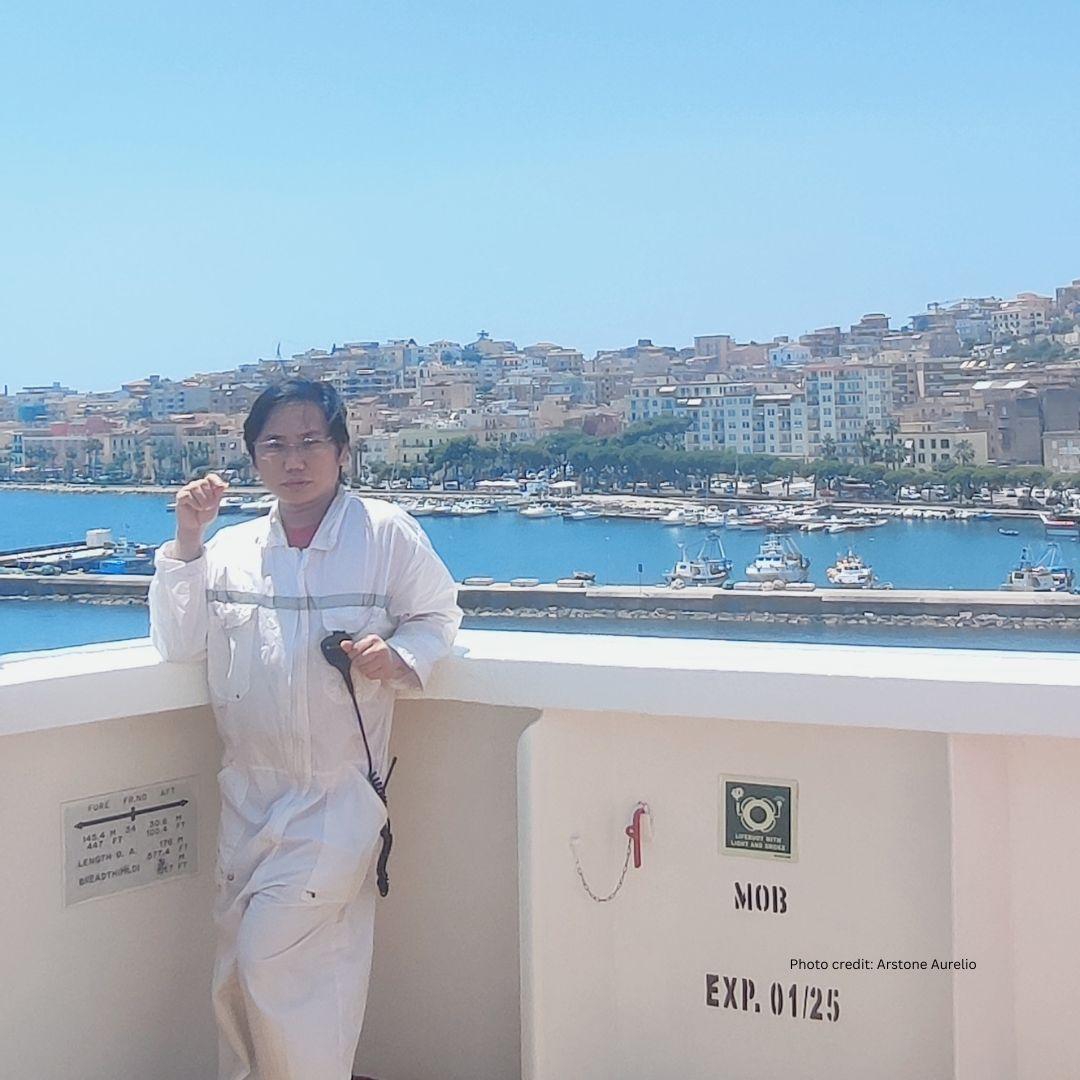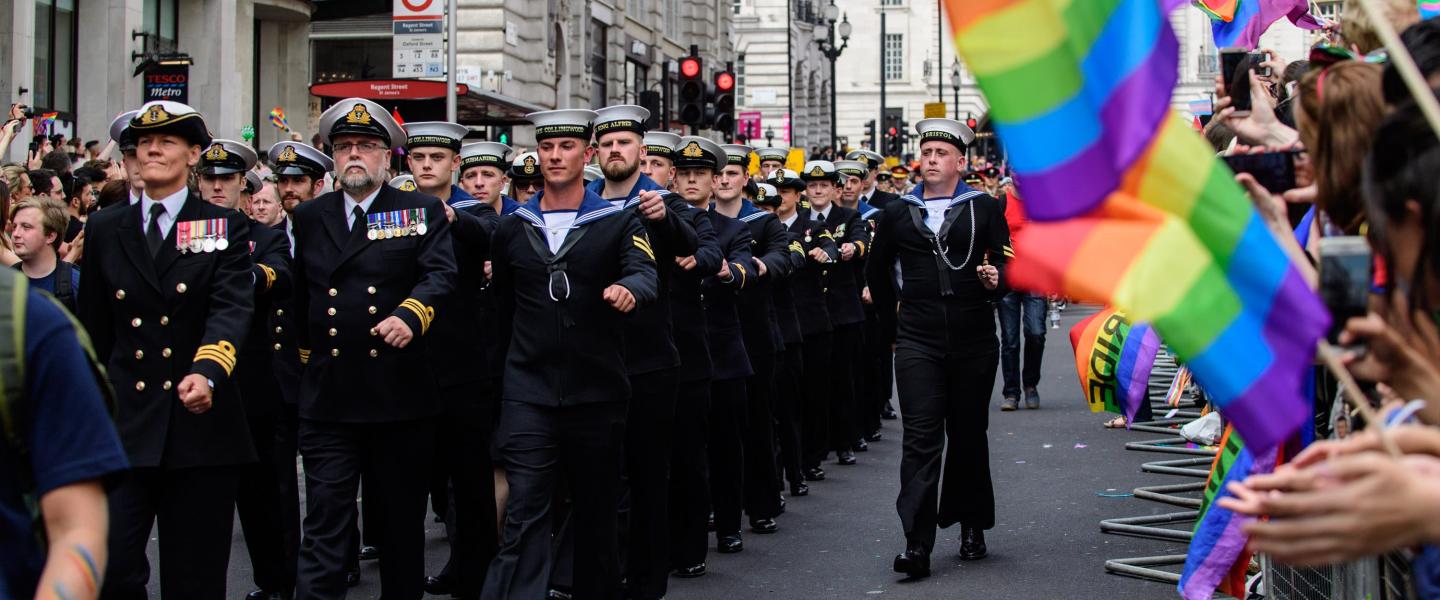Pride in Maritime Day was launched in 2022 as part of an initiative by the Pride in Maritime Network, an established network within Maritime UK's Diversity in Maritime programme. The network aims to identify barriers faced by the LGBT+ maritime community and educate and enable colleagues to empower, support and share good practice policies that support LGBT+ colleagues across the sector.
A Personal Perspective
Until 1999, if you were gay, lesbian, bisexual, or transgender, you were banned from serving in the British Armed Forces. If you were suspected to be anything other than "straight", you were intensely questioned and sometimes subjected to distressing medical inspections.
People lost their careers, relationships, and pensions and were ordered never to use their military rank or wear their uniforms again. Some even served time behind bars due to the military criminal offence of being homosexual.
The ban on homosexuals serving in the armed forces was only lifted in January 2000 - decades after being gay was decriminalised by the Sexual Offences Act of 1967
In December 2022, we collaborated with our Expert Panel member, Captain Samantha Kinsey-Briggs MBE MA Royal Navy, on "Turning the Tide on LGBTQ+ Culture in the Royal Navy Since 2000." which explores the cultural shifts within the Royal Navy after the lifting of the ban on LGBTQ+ personnel serving in the British Armed Forces and delves into lived experiences, lessons learned, and the evolution of the Navy's culture.
Progress and Ongoing Challenges
While significant progress has been made in fostering LGBTQ+ inclusivity in the maritime sector, challenges persist. In various parts of the world, it is still illegal to be gay, and individuals face persecution for their sexual orientation.
In June last year, we interviewed Filipino seafarer Arstone Aurelio, who now considers himself a proud member of the LGBTQ+ community, but it hasn't always been easy.
"I hide my identity as gay and try to be straight onboard," Arstone said; this is how he felt when he first stepped on board in his first role as a Cadet on board a Greek vessel.
Arstone described his first month on board as "really difficult." He was trying his hardest to "act straight" but struggled, expressing that it was in his "nature" and felt that it was "obvious" that he was gay. "it led me to be sent back home. I don't know the reason for this. Maybe because maybe I'm gay?"
Arstone told us he was never given a reason for being sent home, but eventually, he was allowed to return to the ship only in what he describes as a "demoted" position, and he was sent to work in the ship's kitchen and galley.
Changing laws, hearts, and minds is never simple, and it doesn't happen overnight, but we can make a start.
We remain dedicated to advocating for the adoption of the Geneva Declaration on Human Rights at Sea to ensure that human rights are universally respected, regardless of one's sexual orientation or gender identity and fostering an environment where everyone can thrive.
Click here to support our work and contribute to lasting change in the maritime industry and help end human rights abuses at sea.
Contact: If you have any questions, please write to us at enquiries@humanrightsatsea.org
About Sharing. We welcome the use and dissemination of our work with proper accreditation. Please ensure that our Terms of Use are conformed with at all times.
Main photo credit: Leading Photographer Chris Sellars Royal Navy


